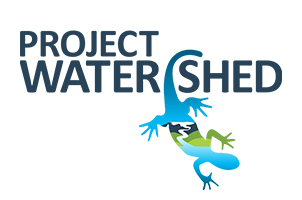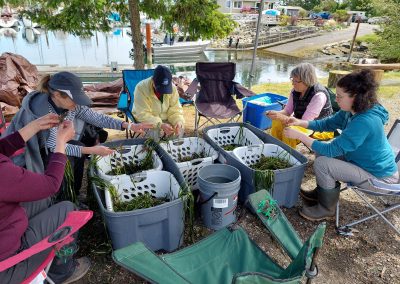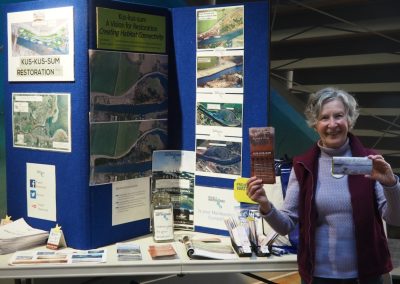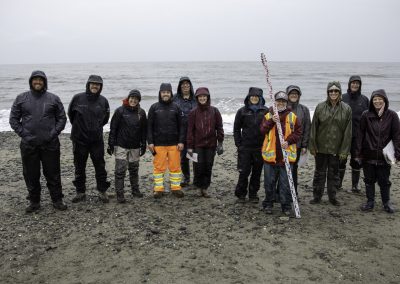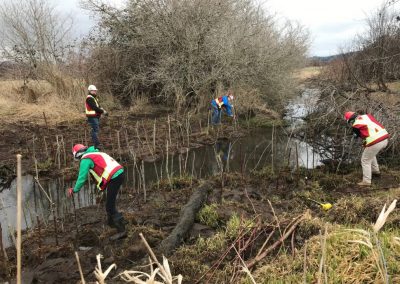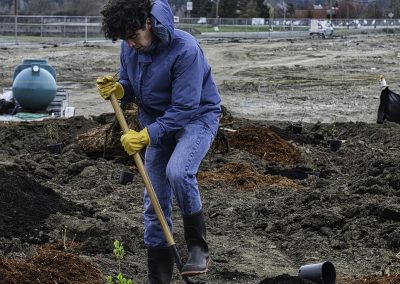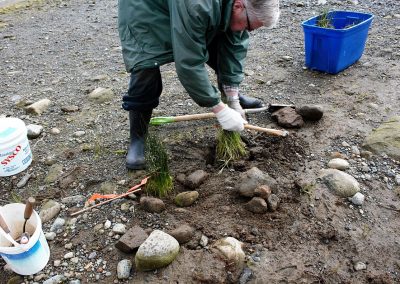Updates to Project Watershed’s Volunteer Program
We have always been very fortunate to be supported by great volunteers. As we get involved in more restoration/research work there are more tasks to go around and the need for volunteers and streamlined processes increases. To this end we have made some changes to our volunteer program. As we work through these changes we thank you for your patience.
One of the big changes is that we now have Virginia East helping coordinate volunteer management. For those of you who don’t know Virginia, she has been coordinating the citizen science portion of our Forage Fish work since 2019. She will be working with the rest of our staff to post, schedule and prepare for volunteer opportunities as well as sending reminder emails and follow up emails to volunteers.
Another great change is that we have created a digital version of our Volunteer Handbook. This is a great place to learn more about Project Watershed and volunteering with us. It also includes links to our Volunteer Application Form, Waiver and Time Tracking Form.
We ask that volunteers track their time for a variety of reasons. One of which is that volunteer time can help us leverage other funding. Funders “value” volunteer time differently but a common rate we can claim is $20/hr per volunteer. Other reasons to track volunteer time include the ability to celebrate volunteer milestones and those that go above and beyond.
We are also now posting all our volunteer opportunities to the front page of our website and our Events page which will display all the events on a calendar and in a list. When you click on an event you will visit a page with the details of the activity and a sign up form. After you sign up for an event you should receive a confirmation email within a few hours. This email may go to your SPAM or JUNK folder so please check these locations if you don’t receive it in your inbox. You can always email Virginia or Caila if you have questions, did not receive a confirmation email or need to cancel a shift.
Lastly, as we received much positive feedback after our symposiums we have decided to try and hold them twice a year in March and September. This will help us keep our volunteers up-to-date and help us prepare for our busiest volunteer seasons. We would like to thank the Flying Apron and Big Foot Donuts for the goodies they donated to our Symposium on September 22.
Related Posts
Mallard Creek Restoration Update for 2024
Restoration work in Mallard Creek will continue this year, including invasive removal, restoring connectivity, and trial planting of a new riparian species. Volunteer events starting in September 2024.
Volunteer at Kus-kus-sum Chamber of Commerce Event
We are showing Kus-kus-sum off to businesses in the Valley through a Chamber Business to Business event. We are looking for a few volunteers to assist with this event.
Coastal Plant Monitoring
Get involved with our new vegetation community science monitoring program!
Spring Field Trips
Throughout May and June Project Watershed will be taking elementary school classes out on field trips to learn about estuary and coastal ecology and to assist with planting and plant maintenance.
Working Together to Identify Forage Fish Spawning Beaches
This year marks the 5th year of a partnership between Comox Valley Project Watershed Society and North Island College on a long-term study to examine intertidal spawning habitats of forage fish in the northern Salish Sea.
Glen Urquhart Update – Spring 2024
Latest news from Glen Urquhart restoration progress for spring 2024.

